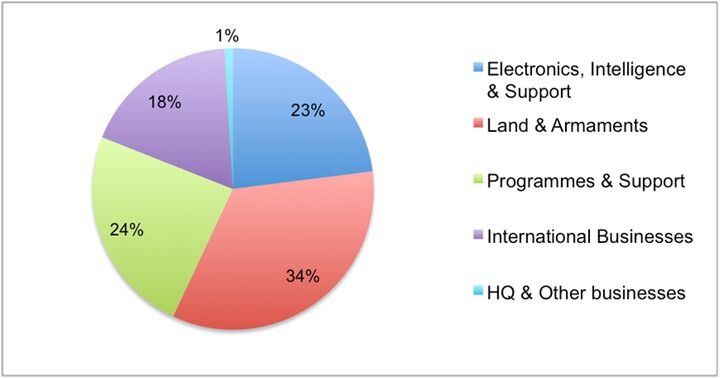
Charles Goulding and Peter Favata look at a partnership between two UK-based 3D printing companies during Brexit.
In the same week that the UK exited Brexit, BAE Systems and Renishaw, two of the country’s leading manufacturers, announced a partnership for further additive manufacturing development in the aerospace area.
BAE Systems
BAE Systems (BAE) is an 85,000 employee global aerospace manufacturer that also announced it is purchasing two leading businesses from the US. United Technologies/Raytheon (UT) merger: Collins Aerospace’s Global Positioning System business and Raytheon’s Airborne tactical radios business. The consensus is that BAE is benefiting from UT’s need to divest non-core businesses related to the huge aerospace merger.
At top is a chart showing BAE’s current business segments.
The two businesses being purchased by BAE are essentially US businesses with substantial sales to the US government as their client.
Renishaw
Renishaw is a 5,000 employee engineering company with a strong 3D printing business and other critical industrial manufacturing products including machine tools and coordinate measurement machines. Ninety-five percent of Renishaw’s revenue comes from outside the UK and it has greatly expanded its US manufacturing, engineering, and consulting capabilities in the US in recent years.
The Research & Development Tax Credit
Enacted in 1981, the now permanent Federal Research and Development (R&D) Tax Credit allows a credit that typically ranges from 4%-7% of eligible spending for new and improved products and processes. Qualified research must meet the following four criteria:
-
Must be technological in nature
-
Must be a component of the taxpayer’s business
-
Must represent R&D in the experimental sense and generally includes all such costs related to the development or improvement of a product or proces
-
Must eliminate uncertainty through a process of experimentation that considers one or more alternatives
Eligible costs include US employee wages, cost of supplies consumed in the R&D process, cost of pre-production testing, US contract research expenses, and certain costs associated with developing a patent.
On December 18, 2015, President Obama signed the PATH Act, making the R&D Tax Credit permanent. Since 2016, the R&D credit can be used to offset Alternative Minimum Tax (AMT) or companies with revenue below $50MM and, startup businesses can obtain up to $250,000 per year in cash rebates that can be applied to payroll taxes.
Conclusion
Clearly, there are major UK current developments in both the political and business front. These events are occurring while the US and the UK will be negotiating a new trade agreement. The BAE acquisition should strengthen the long-standing US/UK special relationship, at least in the additive manufacturing business.


1 comment
Comments are closed.